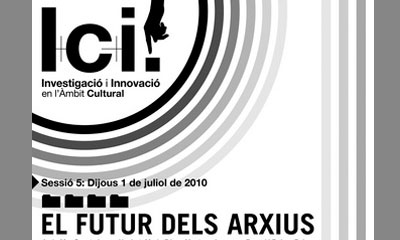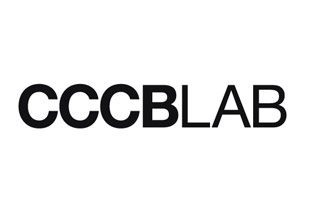I+C+i. Research and innovation in the cultural sphere
I+C+i. The future of the archives
With: Dolors Reig, Laurence Rassel, Jaume Nualart and Mario Pérez-Montoro with the collaboration of the CCCB Archivie
Debate
Free
“Archive sickness”: that is how the symptom suffered by modern western society has been described - registering, documenting, classifying and archiving in an attempt to safeguard memory against falling into oblivion. New technologies have enabled an unprecedented leap in this trend, since the volume of information we can store and disseminate grows by the day. Cultural institutions have not fallen behind in this process and, for a number of years now, the possibility of opening their archives to the public has been a key issue of public debate.
The CCCB has been working to digitalise its document library for over three years now and it can now be consulted in its entirety at the CCCB Archive facilities, where everyone has access to the materials relating to the activities organised by the Centre’s foundation. Stemming from the completion of this process, this session proposes a debate on the future of archives, exploring several perspectives from web 3.0 and key issues regarding data architecture and visualisation to the actual meaning of saving and disseminating the knowledge created by cultural institutions through archives.
• 11 am – 2 pm / 4 pm – 6 pm: Workshop “Visualisation of archive data”, with Jaume Nualarti and Mar Canet.
• 7 pm: Round table “The archives of the future”, with Dolors Reig, Laurence Rassel, Jaume Nualart and Mario Pérez Montoro.
Workshop
We live in times of data and, especially, of organising and archiving data. A few years ago it used to be said that if something wasn’t on the net, it didn’t exist; and today we can state that if the data contained in a document have not been archived, the document does not exist either. In the same way, if adequate interfaces do not exist between the data and the individuals, the archive or library is not being put to good use.
Data visualisation is not just for displaying digital archives and libraries, exhibiting them or playing them. It also serves to multiply access, improve research and understand data gathering. In short, to transform data into knowledge.
At this workshop our challenge is to propose tools and methods for visualising digital archives in order to improve consultation options and make the content more accessible to the general public. The case study to be used for the workshop shall be the CCCB Archive.
Workshop schedule:
The workshop is split into four separate parts:
Morning:
1. Introductory session on data visualisation. Presentation of the CCCB Archive.
2. Building interfaces for visualisation, research and comprehension of the CCCB Archive data.
Afternoon:
3. Critical analysis of the proposals made.
4. Joint proposal for possible improvements applicable to the CCCB Archive interface.
Participants: Jaume Nualart Vilaplana, Mar Canet Solà, Dolors Reig, Laurence Rassel, Mario Pérez Montoro
This activity is part of I+C+i. 2010, I+C+i. Research and innovation in the cultural sphere




